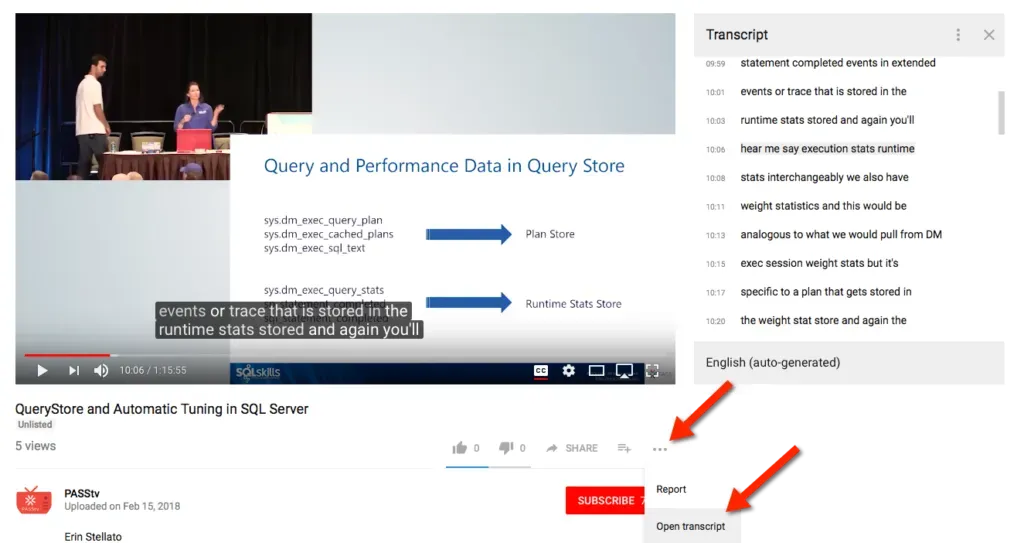If you’re tired of wading through AI-generated overviews and just want straightforward answers, you might consider ways to disable Google AI results. Many users are frustrated with the AI suggestions that clutter their search experience, prompting them to seek methods to turn off Google AI. Surprisingly, a recent trend has emerged where inserting curse words into search queries effectively stops these AI overviews from appearing. This clever trick not only provides more relevant results but also allows users to vent their frustrations in a humorous way. Whether you’re looking to stop AI suggestions or simply want to refine your search experience, learning how to disable AI search results can be a game-changer.
In the quest to enhance the Google search experience, many individuals are exploring alternatives to AI-driven content. The increasing presence of machine-generated summaries has left users longing for direct links and clearer information. To combat this, savvy searchers are experimenting with various tactics to turn off AI features that seem to overcomplicate simple queries. By employing creative search techniques or even leveraging exclamations, users can effectively navigate around the intrusive AI systems. Embracing these strategies not only streamlines search results but also empowers users to reclaim control over their online inquiries.
The Impact of Curse Words in Google Searches
Using curse words in Google searches has emerged as an unconventional yet effective method to disable Google’s AI Overviews. When users incorporate explicit language into their search queries, they often find themselves receiving a list of traditional web links rather than AI-generated summaries. This phenomenon highlights how Google’s algorithms are designed to filter out profanity, leading to a more straightforward search experience when such words are included. For example, a query like “how do I turn off f***ing Google AI results” yields much more useful results than a conventional query without any explicit language.
This trend has sparked discussions among internet users about the implications of using curse words in digital searches. Not only does it provide a temporary workaround for disabling AI Overviews, but it also raises questions about the effectiveness and adaptability of AI systems. The reliance on curse words to bypass AI features suggests that users are actively seeking ways to reclaim control over their search results, reflecting a broader frustration with AI’s limitations in understanding human language nuances.
Effective Methods to Disable Google AI Results
In addition to the curse word trick, there are various techniques users can employ to disable Google AI results. One popular method involves adding specific parameters to the search URL. For instance, appending “&udm=14” to the end of the URL has proven effective in eliminating both AI Overviews and web snippets. This manipulation allows for a cleaner search experience devoid of intrusive AI features, catering to users who prefer traditional search results without AI interference.
Another approach gaining traction among users is to append the string “-ai” to search queries. This method has shown success in multiple tests, indicating that Google’s AI systems may be programmed to filter out results when certain strings are detected. Such techniques highlight the adaptability of users in navigating Google’s evolving search landscape, showcasing a collective desire to maintain a direct and unfiltered connection to information.
Turning Off Google AI: User Strategies and Insights
Users have articulated various strategies to turn off Google AI, stemming from a shared frustration with AI Overviews. As the digital landscape evolves, so too do the tactics employed by users seeking to enhance their search experiences. The inclusion of curse words as a disabling tool has not only become a popular method but also a topic of conversation on social media platforms. This phenomenon underscores the importance of user feedback in shaping the future of search functionalities.
Moreover, these strategies reflect a broader sentiment among Google users who feel overwhelmed by AI suggestions that often misinterpret their queries. By sharing these insights and tactics online, users are creating a community of informed searchers who can navigate the complexities of AI-driven search results. This collective effort to disable AI features highlights an ongoing dialogue about the balance between AI assistance and user autonomy in the search experience.
The Role of Google AI Overviews in Search Results
Google AI Overviews serve as a double-edged sword in the realm of search results. While they aim to provide quick answers and summarize information, many users find them intrusive and often inaccurate. The reliance on AI to generate these overviews can lead to misunderstandings or misrepresentations of the content, leaving users frustrated. This has prompted a growing number of searchers to explore alternative methods to disable these AI features and reclaim their search experience.
As users engage more with Google’s search functionalities, the demand for transparency and accuracy has become paramount. The presence of AI Overviews can obscure valuable content from users, leading to a search experience that feels less personal and more mechanical. Consequently, the conversation around disabling AI suggestions has gained momentum, with users advocating for clearer, more direct access to information without the interference of AI-generated content.
Exploring User Frustrations with AI Suggestions
The implementation of AI suggestions in Google searches has sparked significant user frustration. Many individuals feel that these AI-generated responses do not accurately reflect their inquiries, often leading to confusion or misdirection. This has resulted in a widespread desire among users to find effective ways to disable AI Overviews, thus allowing for a more straightforward search experience. The emotional responses to these frustrations often manifest in social media discussions, where users share their experiences and tactics.
Moreover, the growing dissatisfaction with AI suggestions reflects a deeper concern regarding the reliance on artificial intelligence in everyday tasks. As users continue to seek methods to turn off Google AI, they highlight the need for a more intuitive search interface that prioritizes human understanding over algorithmic responses. This ongoing dialogue emphasizes the importance of user agency in shaping the future of search technologies.
Disabling AI Search Results: A Community Approach
The quest to disable AI search results has led to the formation of a community of users who share tips and tricks to enhance their search experiences. This collaborative effort is vital in an age where AI is becoming increasingly prevalent in digital interactions. Users are learning from each other, sharing successful methods such as inserting curse words or specific URL parameters that effectively bypass AI-generated content.
This sense of community fosters a shared understanding of the challenges posed by AI in search engines. By pooling their knowledge, users are not only finding solutions but are also advocating for a search experience that better respects their preferences and needs. Such grassroots movements highlight the importance of user feedback in influencing how search technologies evolve and adapt to meet user demands.
The Psychology Behind Cursing in Searches
The psychology of using curse words in searches reveals interesting insights into user behavior and frustrations with technology. Cursing often serves as an emotional release, and when applied to search queries, it reflects a user’s desire for control over an increasingly complex digital landscape. The effectiveness of this method in disabling AI Overviews may also suggest that users are seeking a more authentic interaction with technology, one that acknowledges their emotions and frustrations.
Furthermore, the act of cursing can also be seen as a form of rebellion against perceived technological limitations. By using explicit language, users assert their agency in a system that often feels impersonal and automated. This behavioral trend illustrates the nuanced relationship between human emotion and technology, emphasizing the need for search engines to evolve in a way that accommodates user sentiment.
The Future of Google Searches: User-Centric Innovations
Looking ahead, the future of Google searches may hinge on user-centric innovations that address the growing dissatisfaction with AI Overviews. As more users seek ways to disable these features, Google may be compelled to reassess its approach to AI in search results. Enhancing user options for customizing their search experiences could foster greater satisfaction and trust in the platform.
Innovation in search technologies should prioritize user preferences, allowing individuals to tailor their experiences without the interference of AI-generated content. By listening to user feedback and adapting to their needs, Google can create a more intuitive search environment that respects both human language and emotion, ultimately leading to a more fulfilling search experience.
Frequently Asked Questions
How can I disable Google AI results in my searches?
To disable Google AI results, you can try adding specific curse words to your search queries. This method, known as the ‘curse to disable Google AI,’ has been shown to effectively bypass AI Overviews and return standard web results instead.
What are some effective ways to turn off Google AI suggestions?
In addition to using curse words, you can turn off Google AI suggestions by appending “&udm=14” to your search URL. This will remove both AI Overviews and web snippets from your results.
Do curse words really help in stopping AI suggestions on Google?
Yes, inserting curse words into your search queries can reliably disable Google AI Overviews. This technique has been tested and confirmed by many users, making it a popular trick to avoid AI-generated results.
Is there a way to stop AI search results without using profanity?
Absolutely! Besides using curse words, you can append “-ai” or any other text string to the end of your search query. This method has been successful in turning off AI Overviews for many users.
Why does using curse words disable Google’s AI overviews?
Google’s AI system, particularly the Gemini AI, is programmed to avoid swear words, which can lead to it bypassing AI Overviews when such words are included in search queries.
What happens to my search results when I disable Google AI overviews?
When you disable Google AI overviews, your search results revert to more traditional web links, providing a variety of sources without the AI-generated summaries that can sometimes be misleading.
Are there any risks when disabling AI search results?
While disabling AI search results can lead to a more straightforward search experience, be aware that altering your search method or settings may affect the relevance of your results, especially if SafeSearch is turned off.
How can I keep my search history clean while disabling Google AI results?
To maintain a clean search history while still disabling Google AI results, consider using the URL modification techniques, like adding “&udm=14” or “-ai,” instead of inserting curse words directly into your queries.
Can I permanently disable Google AI results on my account?
Currently, there is no permanent way to disable Google AI results across all searches. However, utilizing techniques like URL modifications or appending certain strings can help you achieve a similar outcome temporarily.
What are AI Overviews and why do users want to disable them?
AI Overviews are automated summaries generated by Google’s AI system, which some users find to be inaccurate or unhelpful. Many seek to disable them to return to a more traditional search experience that offers a wider variety of reliable web links.
| Method | Description | Effectiveness |
|---|---|---|
| Cursing in Search Queries | Inserting curse words like ‘f***ing’ in your search query can disable AI Overviews. | High – consistently effective in tests. |
| Using URL Parameters | Adding ‘&udm=14’ to the search URL eliminates AI Overviews and web snippets. | High – works reliably after initial discovery. |
| Appending ‘-ai’ to Searches | Adding ‘-ai’ at the end of a search query seems to disable AI Overviews. | Moderate – effective in tests, but results may vary. |
| Browser Settings or Plug-ins | Adjusting browser settings or using plug-ins to automate URL modifications. | High – can streamline the process for frequent searches. |
Summary
To disable Google AI results, users have discovered various effective methods that can enhance their search experience. By incorporating certain curse words into search queries, such as “f***ing Google AI results,” users can bypass AI Overviews that clutter search results. This method has proven to be both cathartic and effective, showcasing the frustrations many feel towards Google’s AI features. Additionally, using specific URL parameters or appending certain strings to searches offers alternative ways to eliminate AI Overviews without resorting to profanity. Ultimately, these findings highlight the ongoing dissatisfaction with AI-generated content in search results and the creativity of users in seeking a more straightforward and reliable search experience.










